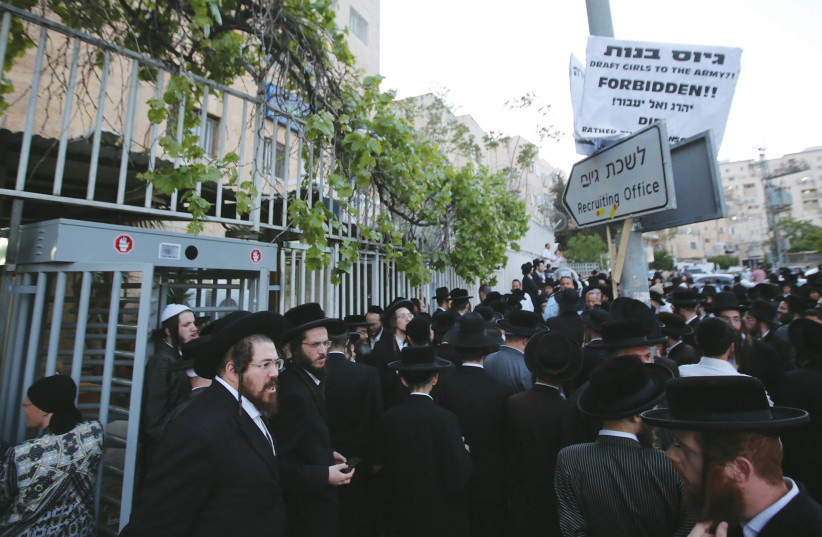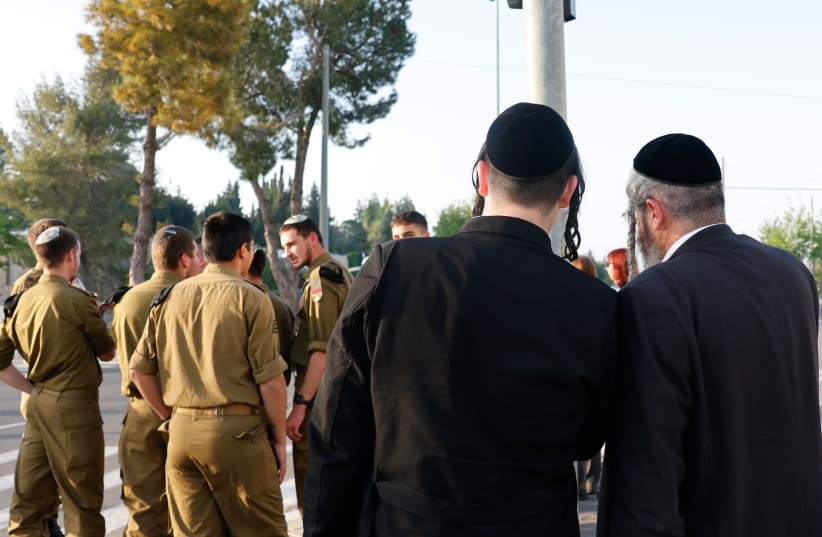Recent discussions surrounding the Haredi military draft bill in Israel have brought attention to the new compulsory service model, which the IDF was planning to present in May as part of a multi-year plan to overhaul the conscription model.
The new service model is an adapted version of a model that was worked on for over two years with the cooperation of IDF Chief of Staff Lt.-Gen. Herzi Halevi, who was serving as Deputy Chief of Staff at the time.
The guiding idea of the new model is to preserve the army's effectiveness of the IDF while striking a balance between the duration of training courses and meaningful active service periods. The goal of this would be to instill a sense of meaning and purpose into a soldier's compulsory service while also preserving the IDF's character as the army of the people.
What changes could be made to IDF services in the future?
One of the principles guiding the new model is to efficiently meet the IDF's manpower requirements, which will see the need for a longer service period for combat soldiers and those working in technological units examined, as well as the possibility of a shorter service period for those serving in various other parts of the military in which long training periods are not required.
This could see a change going forward in which there will be a mandatory conscription period of 32 months, of which 28.5 months will be spent in active service.

At the same time, the principal of maintaining demographic-potential growth has also been prioritized in the new model, which would allow for important distinctions to be made between the combatant operational front of the IDF and the rest of the military.
Give more, get more
Additional issues that have been prioritized are the concepts of utilizing the conscripted army in more effective ways, and the concept of recognition and reward - meaning that those who do more will get more in return.
As part of the new model, those who serve in combat units will do 28 months of mandatory active service followed by four months of service as a salaried soldier, with the possibility of an additional four months after that. Soldiers in the technological units will serve a mandatory 28 months and then four more months as salaried soldiers. All other soldiers will serve 24 months.
Those who sign on to serve longer will receive a financial supplement beginning from the 25th month, which will be a larger sum than what is currently issued.
Alongside these figures, the issue of recognition of IDF service and of combat service also came up, which requires legislation to be passed before it can come into effect. The guiding principle will be that a longer mandatory service and longer service as a combat soldier will see the soldier receive more financial rewards.
The new model also seeks to keep the status of army service above that of National Service, making it a more desirable option.
At the same time, the IDF continues to develop service options to attract Haredi conscripts who will continue to receive their enlistment orders at the age 18, as is standard. The IDF opposes a complete exemption from conscription for the ultra-Orthodox and continues to support plans for the exemption age to be 23, and no less.
